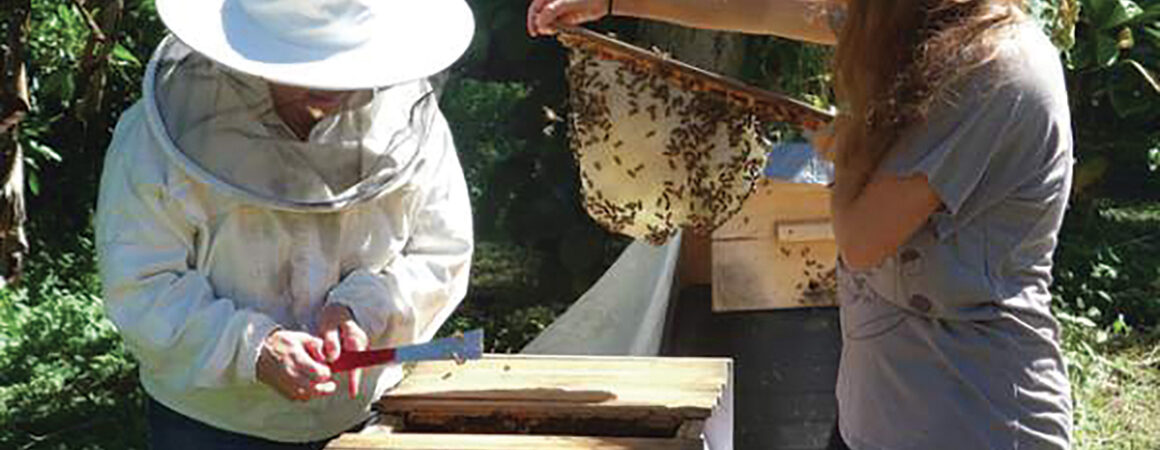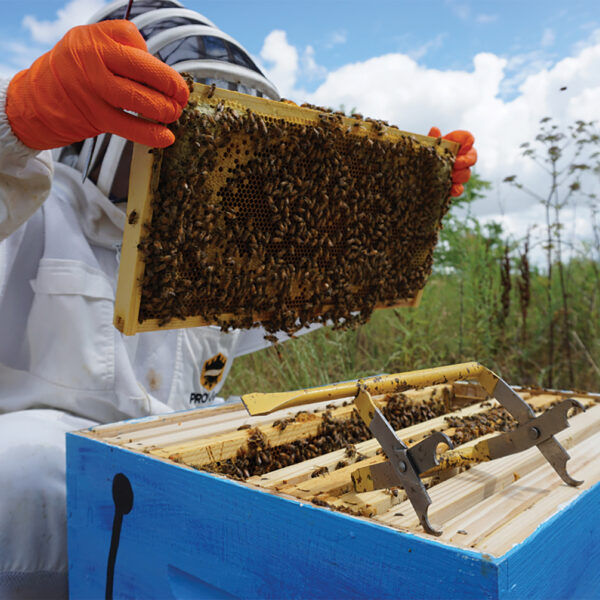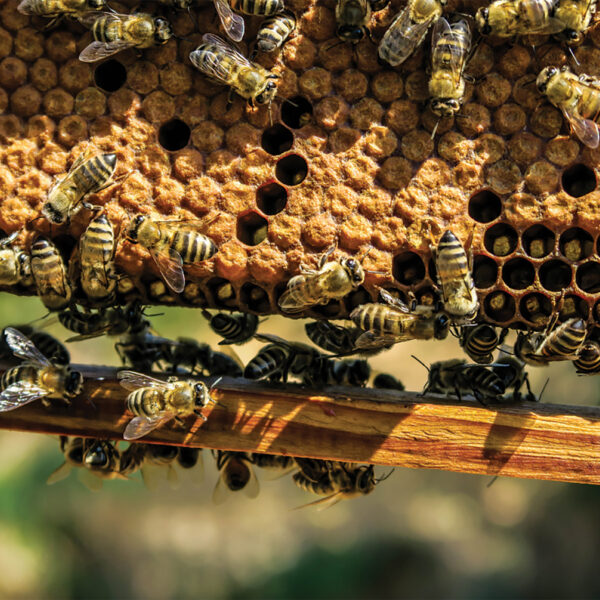Bee Thankful
On Friday 20th May, we celebrate World Bee Day, an annual day to celebrate and promote the good work bees do and to raise awareness of their importance, the threats to their environment and to find out what we can do to help.
The British Beekeepers’ Association has about 30,000 members who manage over 100,00 honey bees hives. BBKA members will be celebrating World Bee Day along with many other countries around the world. It is a day when beekeepers can individually raise awareness and inform the public of beekeeping events near them.
Honey bees collect nectar from flowering plants which they turn into honey. Unlike other bee species, honey bees collect a massive surplus of honey which they use to keep the colony alive over winter. They rely on flowers for food to provide both the nectar which they turn into honey and pollen which they use as protein for feeding the new bees within the colony. A varied diet is essential – as it is for humans too! Beekeepers harvest only some of this surplus and always ensure that the honey bee colonies have enough food for winter.
The public can help bees by planting bee friendly plants in their gardens and encouraging their councils to plant wildflower meadows and leave grass verges alone to allow wildflowers to bloom. Flowers that emerge in early spring, like snowdrops or crocuses, or late winter like Mahonia can be useful. But all flowers help! Please feed the bees and plant something with bee friendly open flowers. If you plant something that will produce fruit then you will also benefit directly from your planting, as well as the bees helping to pollinate your plants.
Here in the UK May is a busy time for beekeepers who are tending their bees and watching them progress into strong colonies and often bringing in a spring honey crop, depending on the weather and forage available.
British beekeepers’ Association offers leaflets and information about planting for bees and has a Planting for bees quarterly blog available to encourage the public to help support bees by planting more food. During May BBKA also supports ‘No Mow May’ where the public are asked to not mow their lawns for a month to allow wild flowers to grow and provide pollen and nectar as food for all pollinating insects.
Many associations hold taster days for members of the public to visit apiaries and get to see bees. Beekeepers all over the country give talks at schools, Scouts and Guides, WI, and other organisations all year round.
Contact your nearest beekeeping association on BBKA’s page “Find Beekeeping near you” if you’d like to find out more about keeping bees, or to arrange a talk.
www.bbka.org.uk/find-beekeeping-near-you



